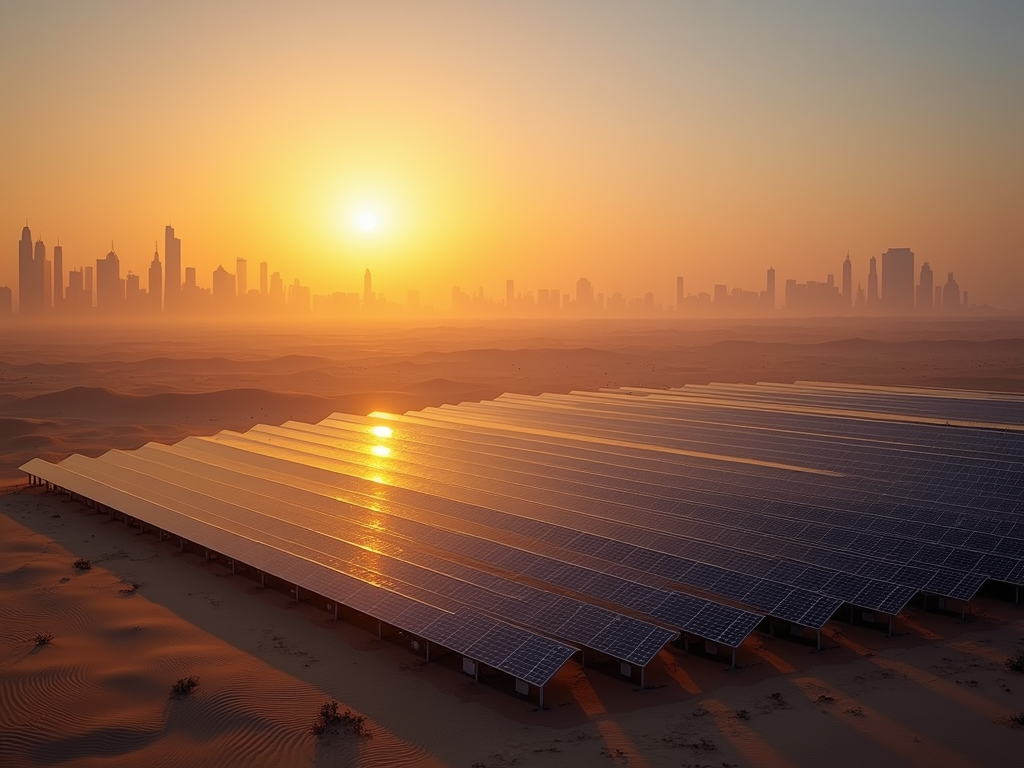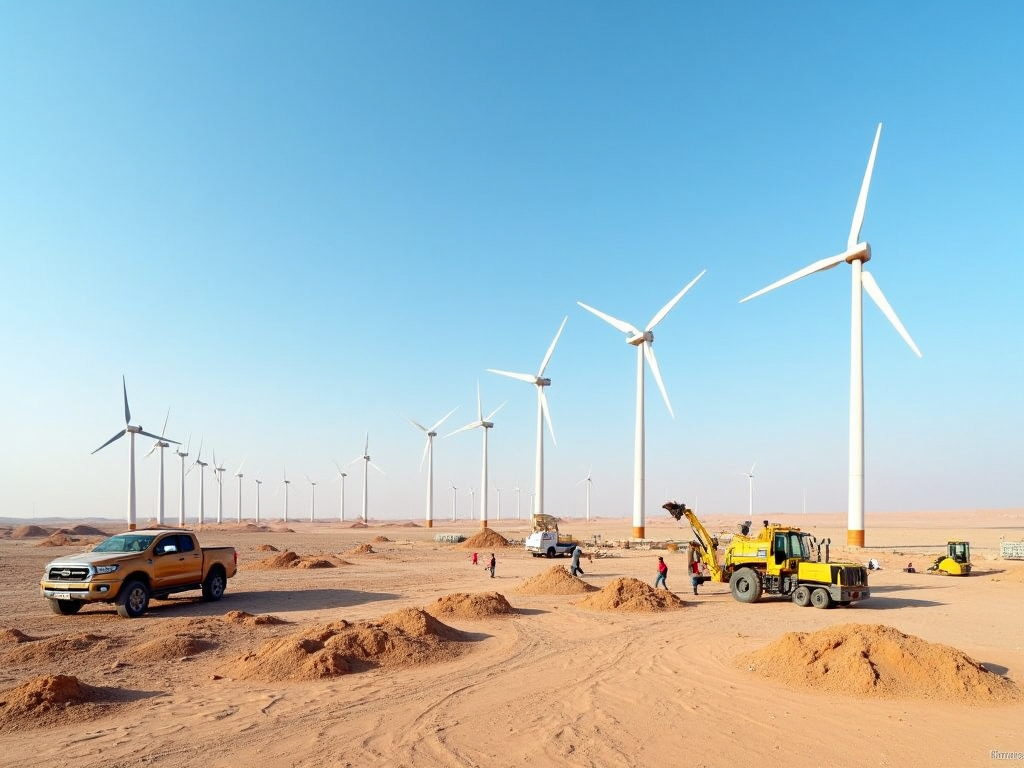
The Future of Renewable Energy Businesses in Dubai
As the global imperative for clean energy intensifies, Dubai stands on the brink of transforming its energy sector with renewable energy solutions. This vibrant city, known for its ultramodern architecture and diverse economy, is focusing on renewable energy as a cornerstone for sustainable development. With strategic initiatives and investments, Dubai aims to diversify its energy portfolio, reduce reliance on fossil fuels, and foster innovation in the energy sector. This article delves into the future prospects of renewable energy businesses in Dubai, examining the driving factors, initiatives, and potential challenges that lie ahead.
1. Government Initiatives and Policies

The government of Dubai has recognized the crucial role of renewable energy in fostering a sustainable economy. This commitment is illustrated through several robust initiatives and policies that aim to boost renewable energy adoption. Key to these initiatives is the Dubai Clean Energy Strategy 2050, which aims to generate 75% of the emirate’s total power output from clean energy sources. The following government-driven actions are pivotal to the future of renewable energy businesses:
- Investment in Infrastructure: The Dubai Electricity and Water Authority (DEWA) is aggressively investing in renewable energy infrastructure, including solar parks and wind farms.
- Incentives for Businesses: Financial incentives for companies investing in renewable technologies are offered to encourage private sector participation.
- Regulatory Frameworks: Streamlined regulations and guidelines are being developed to facilitate renewable energy projects.
- Public-Private Partnerships: Collaborations between the government and private enterprises are being fostered to innovate in energy technologies.
These strategic policies establish a very favorable environment for renewable energy businesses to flourish.
2. Technological Advancements in Renewable Energy

Technological advancements are pivotal in shaping the future of renewable energy businesses in Dubai. Innovations in solar, wind, and energy storage technologies are making renewable resources more viable than ever. The emirate is capitalizing on its abundant solar radiation; the Mohammed bin Rashid Al Maktoum Solar Park is envisioned to be one of the world’s largest solar power projects. Recent trends in technology include:
- High-efficiency solar panels that maximize energy output.
- Energy storage solutions that address the intermittency of renewable energies.
- Smart grid technologies that enhance renewable energy integration and energy efficiency.
These technological developments will play a significant role in fostering competitiveness and viability in the renewable energy sector of Dubai.
The transition to renewable energy is not only an environmental necessity but also an economic opportunity. The renewable energy sector in Dubai is expected to create thousands of jobs and stimulate economic growth. The benefits include:
- Job Opportunities: The installation and maintenance of renewable energy systems will create a diverse range of jobs.
- Attracting Investment: A focus on renewable energy will attract both local and foreign investments, enhancing the overall economy.
- Innovation and Research: Increased funding for research and development within renewable technologies can foster innovation in various sectors.
- Competitive Advantage: Embracing renewable energy can position Dubai as a leader in the green economy.
Overall, the economic implications are a powerful catalyst driving the growth of renewable energy businesses in Dubai.
4. Community Engagement and Awareness
A successful transition to renewable energy also relies on community engagement and public awareness. Dubai is actively promoting renewable energy through various outreach programs aimed at educating the public on the importance and benefits of clean energy. Efforts include:
- Workshops and training programs to equip stakeholders with knowledge about renewable technologies.
- Collaborations with schools and universities to integrate renewable energy principles into educational curricula.
- Public campaigns promoting energy conservation and sustainable practices.
Such initiatives help cultivate a culture of sustainability within the community, ensuring local support for renewable energy projects.
5. Challenges and Considerations
While the outlook for renewable energy businesses in Dubai is promising, numerous challenges must be addressed to ensure sustainable growth. Some of the key challenges include:
- Market Competition: As more players enter the renewable energy market, competition may increase, requiring businesses to differentiate themselves.
- Technological Limitations: The efficiency and reliability of renewable energy technologies are crucial for wide-scale adoption.
- Policy Changes: Ongoing support from the government is essential; any changes in policies may impact project viability.
- Cultural Barriers: Some sectors may be slow to adopt renewable energy practices due to traditional views on energy consumption.
Addressing these challenges will require collaboration between businesses, government, and the community.
Conclusion
The future of renewable energy businesses in Dubai holds immense potential, driven by innovative government policies, technological advancements, economic opportunities, and community engagement. However, overcoming challenges such as market competition and technological limitations will be crucial for sustained growth. As Dubai continues to invest in renewable energy infrastructure and foster a culture of sustainability, it is poised to emerge as a leader in the global green economy, setting benchmarks for other cities worldwide.
Frequently Asked Questions
1. What is the Dubai Clean Energy Strategy 2050?
The Dubai Clean Energy Strategy 2050 is a government-led initiative aimed at generating 75% of the emirate’s total power output from clean energy sources by the year 2050, focusing on sustainability and economic diversification.
2. How will renewable energy impact job creation in Dubai?
The renewable energy sector is expected to create thousands of jobs, particularly in the installation, maintenance, and management of renewable energy systems, thereby stimulating the local economy.
3. What role does technology play in the renewable energy landscape of Dubai?
Technological advancements in solar, wind, and energy storage are crucial for maximizing renewable energy output, improving efficiency, and ensuring seamless integration into the energy grid in Dubai.
4. Are there any financial incentives for businesses investing in renewable energy in Dubai?
Yes, the government of Dubai offers various financial incentives and support mechanisms to encourage businesses to invest in renewable energy technologies and projects.
5. What are the primary challenges facing renewable energy businesses in Dubai?
Challenges include market competition, technological limitations, potential policy changes, and cultural barriers that may hinder the adoption of renewable energy solutions among various sectors.


